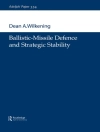This book discusses various dynamic facets of the life of Rāshid al-Ghannūshi̇̄, a distinguished Islamic thinker and activist not only in Tunisia and North Africa, but in the entire Muslim world. It especially focuses on those aspects related to his intellectual understanding and response to a number of critical contemporary issues. In the 21st Century, Rāshid al-Ghannūshi̇̄ is considered as the most moderate among the Muslim thinkers and intellectuals, particularly when it comes to the question of Islam-democracy compatibility and power sharing theory. This book also offers an account of a previously little known, yet much talked about Muslim voice in the post-Arab Spring era. It further shows how the intellectual Muslim thinkers’ own perspectives and expectations from Islamic movement(s) and their interaction with the ‘western oriented local leadership’, as well as their (secular) policies color their understanding of Islam and various other major issues.
Tabla de materias
Chapter 1 Introduction.- Chapter 2 Life and Character: From Birth to the Formation of a Social Reformer.- Chapter 3 Post-Independent Tunisian Atmosphere and the Emergence of a Social Reformer.- Chapter 4 Towards an Exploration of Works of Rāshid al-Ghannūshi̇̄.- Chapter 5 Rāshid al-Ghannūshi̇̄’s Approach to Islam-West Relationship and Human Rights.- Chapter 6 Rāshid al-Ghannūshi̇̄ on Islam-Democracy and Power Sharing Debate.- Chapter 7 Conclusion.
Sobre el autor
Mohammad Dawood Sofi is currently serving as post-doc fellow in the Faculty of Political Science, Ankara Beyazit Yildirm University, Turkey. He holds Ph D in Islamic Studies, Aligarh Muslim University (AMU), Aligarh, India (2016) on the topic “Contemporary Challenges to Islam: A Critique of Al-Nahda”. He is also a Member of Board of Reviewers of Al-Idah, University of Peshawar, Pakistan. His major areas of interest include: Islamic history and sciences; modern Islamic movements; contemporary trends in Islamic reformist thought; and Middle Eastern politics, especially in Tunisia.












